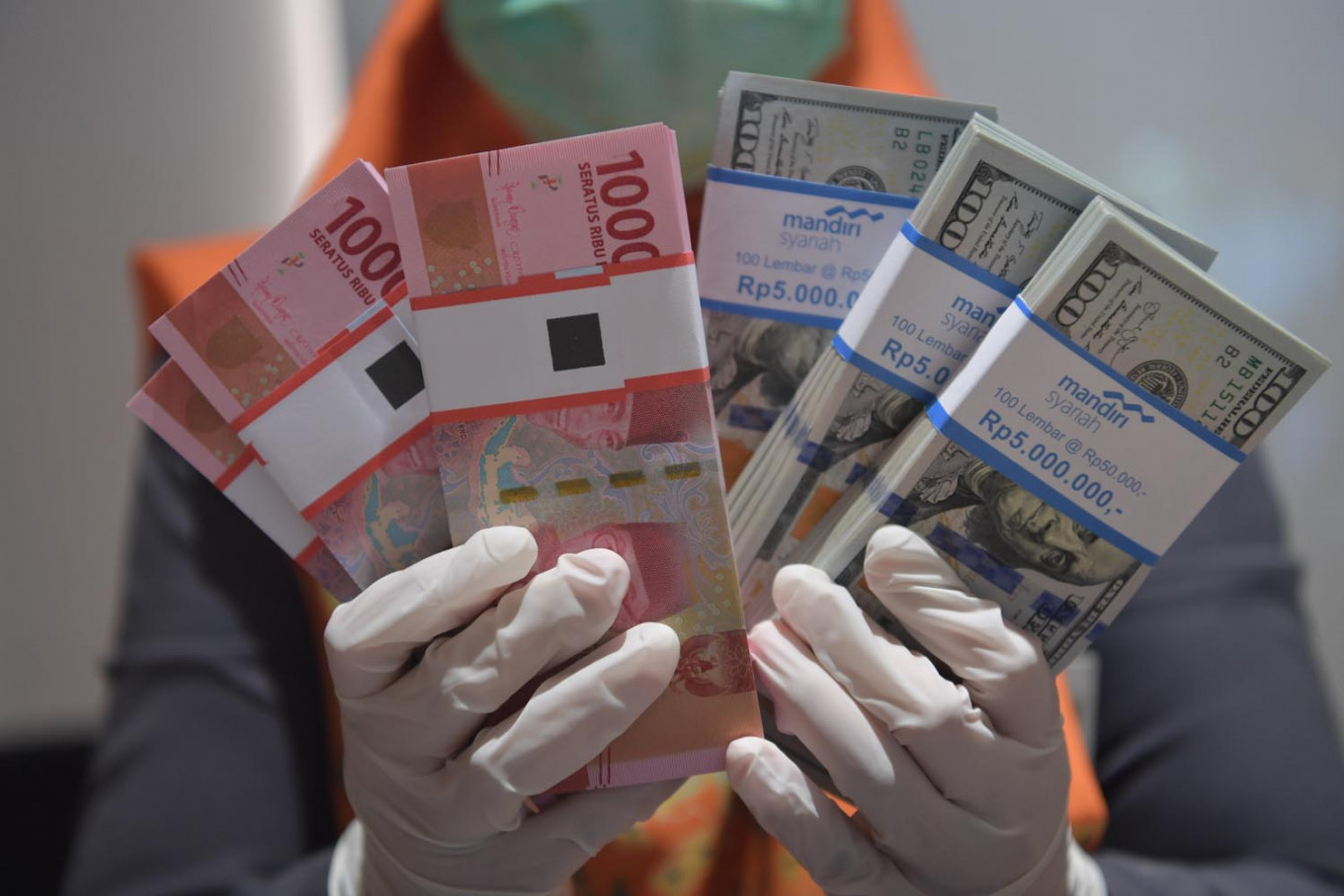Popular Reads
Top Results
Can't find what you're looking for?
View all search resultsPopular Reads
Top Results
Can't find what you're looking for?
View all search resultsStrong rupiah, weak economy
The rupiah’s recent moves from Asia’s best performing currency pre-COVID-19 to the worst during the pandemic-driven global market rout and now back again to the region’s best performer validates beliefs about the asset’s volatility and sensitivity to external factors.
Change text size
Gift Premium Articles
to Anyone
T
he rupiah’s recent rally and capital inflows have been a breath of fresh air against the backdrop of a lackluster domestic economy and increasing numbers of COVID-19 cases. Foreign investors invigorated the domestic capital market, posting net buys in the stock and bond markets in the past month, boosting the rupiah and assets value in the capital market.
We agree with the market consensus that the recent rally in the financial market has largely been driven by external factors. Global stock markets are on the rise, especially last week, as countries around the world begin to reopen their economies, spurring hopes of recovery. The latest United States labor data added to the positive sentiments, as the jobless rate fell to 13.3 percent in May from 14.7 percent, the highest level since the Great Depression, in April. New and bigger stimulus packages announced by the European Central Bank (ECB), which committed to a fresh US$676 billion bond-buying program, also spurred positive sentiment.
Foreign investors bought Rp 11.3 trillion more in stocks than they sold in the past month, driving the 4.9 percent gain seen in the benchmark Jakarta Composite Index (JCI) during the period until Friday. In the bonds market, nonresidents pumped a net Rp 13.86 trillion into tradable government bonds, pushing down the benchmark 10-year government bond yield, which moves in the opposite direction to prices, to 7.11 percent on June 5 from 8.07 percent a month earlier. As a consequence, the rupiah appreciated 7.5 percent in a month to 13,877 against the US dollar as of Friday.
Read also: Rupiah to strengthen further as foreign investors make comeback: Bank Indonesia
The rupiah’s recent moves from Asia’s best performing currency pre-COVID-19 to the worst during the pandemic-driven global market rout and now back again to the region’s best performer validates beliefs about the asset’s volatility and sensitivity to external factors. The currency has moved from13,583 per US dollar at the end of January to 16,575 at the end of March, the lowest level since the 1998 crisis, to today’s rate, which is near pre-COVID-19 levels.
The main support for the currency has been foreign investors and Bank Indonesia’s (BI) bond-buying program. Meanwhile, the fundamental factor, which is the domestic economy, remains weak. Gross domestic product is likely to contract in the second quarter, after growing much slower than government estimates and economists’ consensus at 2.97 percent, the lowest level since 2001. The annual inflation rate of 2.19 percent in May was the lowest in nearly 20 years as the pandemic dealt a heavy blow to purchasing power in a country where domestic spending accounts for nearly 60 percent of the economy.
The government needs to convince investors to remain in Indonesia’s financial market by fixing the fundamentals so we can expect less volatility than today. It can start by focusing on boosting COVID-19 containment measures, which will lower the rate of new cases and deaths, resulting in increased consumer confidence and a stronger economic environment.
Accelerating COVID-19 testing and tracing, accountable spending on healthcare, social safety net programs and rescue packages for micro, small and medium enterprises should be the first steps, followed by improving the credibility of the state budget by lowering the country’s spiking debt to fund the COVID-19 battle.










